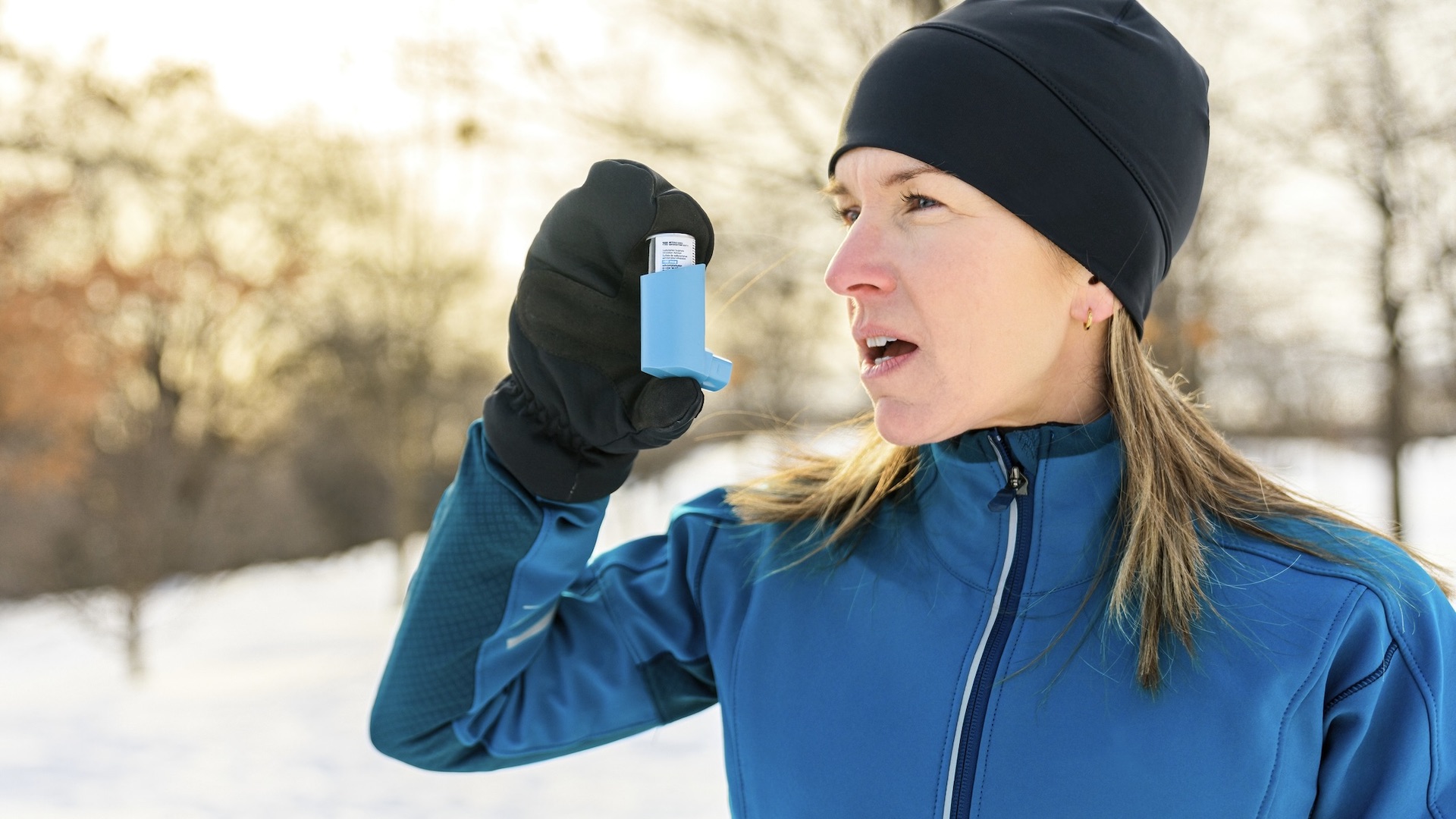
People with asthma can be more prone to a range of symptoms, including wheezing, breathless and a tight chest, when running in cold weather. However, there are also known to be benefits of exercising for asthmatics. We ask a number of experts whether running in cold weather is bad for asthma and if there are precautions that can be taken to allow asthmatics to keep running through winter.

What is asthma?
First, let’s take a look at the medical condition called asthma. Asthma is described as a common lung condition that can result in occasional breathing difficulties.
Asthma is caused by inflammation of the tubes that carry air in and out of the lungs, which become temporarily narrow and sensitive.
Common asthma triggers include allergies, such as pollen, animal fur, smoke, pollution and also cold air. Some infections, such as colds or flu, can also cause an asthma flare up.
The main symptoms of asthma are wheezing, breathlessness, a tight chest and coughing. If the symptoms become temporarily worse, this is called an asthma attack.
Treatments for asthma include an inhaler that allows you to breath medicines. There are several types of inhaler, including a reliever inhaler and a preventer inhaler.
Running with asthma
Running can be a trigger for asthma, although there are also exercise benefits for people with the condition. The question we are exploring in this article is whether it can be too cold for running if you have asthma?
According to the charity, Asthma+Lung UK, it’s the cold and dry air of winter that can be an issue for asthma sufferers in the winter.
Pharmica superintendent pharmacist Carolina Goncalves further explains: “Running in cold weather can be challenging for individuals with asthma because going for a run when the weather is cold usually means having to take breaths repeatedly in dry air.
“This can lead to tightened airways and result in excess mucus production, making it difficult to breathe and triggering bouts of coughing or wheezing.
“In addition, when you breathe in cold, dry air your bronchial tubes can constrict, which is a phenomenon known as bronchospasm.
“This mechanism can trigger asthma symptoms, which may be exacerbated if the airways are narrowed even further as a result of mucus production from breathing in cold air.”
Goncalves says that the likelihood of people with asthma suffering when the air is cold and dry is especially high for those whose condition is poorly controlled. A study reported in Science Direct supports the point that cold weather-related respiratory symptoms were more frequent among asthmatics with poorly controlled asthma.
However, there are ways to reduce the effects of cold weather for runners with asthma.

Reduce asthma issues when running in winter
We asked for some expert tips on how to reduce asthma issues when running in cold weather.
Goncalves suggests:
- Warm up gradually before a run to reduce the risk of bronchospasm caused by cold air.
- Breathe in through the nose to warm up and humidify the dry air being inhaled before it enters the lungs. A study showed that using a scarf or a cellulose fabric face mask over the mouth can help with this.
- Use asthma medication: Individuals who have been diagnosed with asthma for which exercise may trigger symptoms should use the medication prescribed by their GP to control symptoms.
Carolina added: “It’s essential for anyone with asthma, who is considering running in cold weather, to consult with a GP or healthcare provider. They can provide personalised advice and adjustments to their asthma action plan to help manage risks and enjoy activities safely.”
Another expert, Randall Higgins, who is a pharmacist at Good Glow, added: “My advice on managing winter workouts is, firstly, you should use your prescribed inhaler correctly before heading out. This relaxes the airways in advance.
“Cover your nose and mouth with a buff to warm the cold air before it enters your lungs.
“You should also pay attention to your breath and throttle back your pace at the very first sign of wheezing or coughing.”
Finally, Abbas Kanani, a pharmacist at Online Pharmacy Chemist Click, makes a very valid point: “If the weather is extremely cold or dry, try to exercise indoors to avoid any flare-ups.” You can even discover how to make treadmill running less boring.
- The best running jackets: lightweight layers to cut out wind chill







